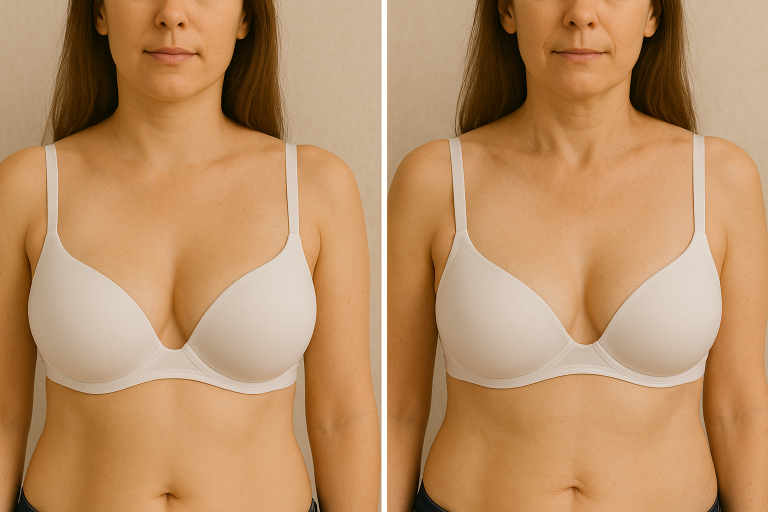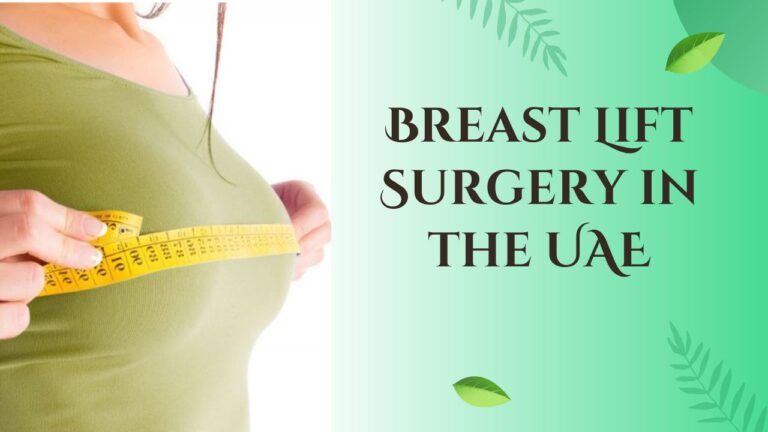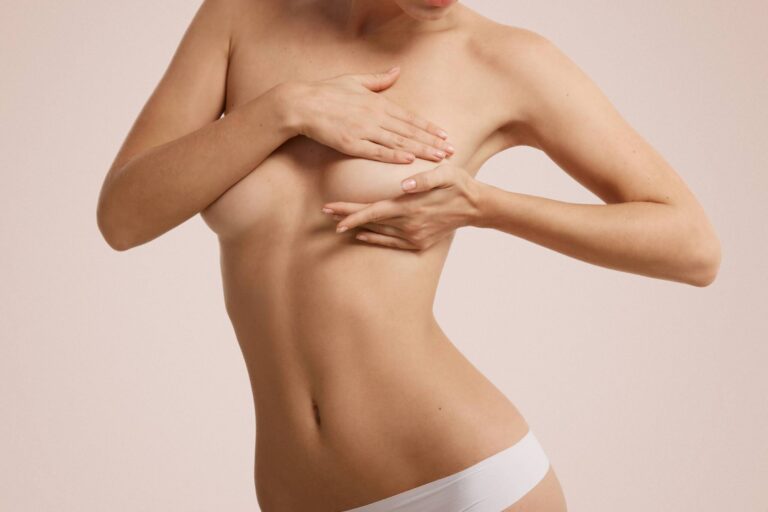Breast augmentation is a significant decision that involves careful consideration of various factors, including lifestyle habits like smoking and alcohol consumption. These habits can profoundly impact the outcomes of breast augmentation surgery, affecting everything from healing to the final aesthetic results. Understanding these effects is crucial for anyone considering this procedure.
Impact of Smoking on Breast Augmentation Outcomes
Decreased Blood Flow and Healing
Smoking significantly reduces blood flow, which is vital for healing after surgery. Nicotine constricts blood vessels, limiting the oxygen and nutrients that reach the surgical site. This can delay the healing process, leading to prolonged recovery times and increased discomfort.
- Nicotine constricts blood vessels.
- Reduced oxygen and nutrient supply.
- Prolonged recovery and increased discomfort.
Increased Risk of Complications
Smokers face a higher risk of complications during and after breast augmentation surgery. The American Society of Plastic Surgeons reports that smoking increases the risk of complications by 40%. These complications can include infections, tissue necrosis, and even implant failure.
- 40% increased risk of complications.
- Higher chances of infections and tissue necrosis.
- Potential for implant failure.
Potential for Poor Scarring
Smoking can also lead to poor scarring, which can affect the aesthetic outcome of breast augmentation. The reduced blood flow and oxygenation can result in thicker, more noticeable scars, detracting from the desired appearance.
Book A Consultation With Dr Tarek Bayazid
Installment Plan Available
- Thicker, more noticeable scars.
- Reduced aesthetic appeal.
- Impact on overall satisfaction with results.
Alcohol Consumption and Breast Implant Surgery
Interference with Anesthesia
Alcohol consumption can interfere with anesthesia, making it less effective during surgery. This can lead to complications such as increased bleeding and prolonged recovery times, as the body struggles to metabolize both alcohol and anesthesia.
- Interference with anesthesia effectiveness.
- Increased bleeding risk.
- Prolonged recovery times.
Prolonged Recovery Time
Excessive alcohol consumption can prolong recovery time after breast augmentation. Alcohol can dehydrate the body, impairing the healing process and increasing the risk of complications such as infections.
- Dehydration impairs healing.
- Increased risk of infections.
- Longer recovery period.
Dehydration Concerns
Alcohol is a diuretic, which means it can lead to dehydration. Dehydration can negatively impact the body’s ability to heal, leading to complications and a less satisfactory outcome from the surgery.
- Alcohol acts as a diuretic.
- Dehydration impacts healing.
- Potential for increased complications.
Nicotine’s Effect on Breast Augmentation Recovery
Delayed Wound Healing
Nicotine’s impact on blood flow can lead to delayed wound healing. This delay can increase the risk of infection and other complications, making recovery more challenging and uncomfortable.
- Nicotine reduces blood flow.
- Delayed wound healing.
- Increased infection risk.
Increased Infection Risk
Smokers have a 12.5% higher risk of infection following breast augmentation compared to non-smokers. This increased risk can lead to more severe complications and a longer recovery period.
- 12.5% higher infection risk.
- More severe complications.
- Extended recovery time.
Compromised Aesthetic Results
The combination of delayed healing and increased infection risk can compromise the aesthetic results of breast augmentation. Poor healing can lead to asymmetry, visible scarring, and dissatisfaction with the final appearance.
- Asymmetry and visible scarring.
- Dissatisfaction with results.
- Impact on the overall aesthetic outcome.
Alcohol’s Impact on Post-Surgery Medication
Interactions with Pain Medications
Alcohol can interact with pain medications prescribed after breast augmentation, reducing their effectiveness and increasing the risk of side effects. This can lead to inadequate pain management and a more challenging recovery.
- Alcohol reduces pain medication effectiveness.
- Increased risk of side effects.
- Inadequate pain management.
Reduced Effectiveness of Antibiotics
Alcohol consumption can also reduce the effectiveness of antibiotics, increasing the risk of infections. This can lead to more severe complications and a longer recovery period.
- Reduced antibiotic effectiveness.
- Increased infection risk.
- Longer recovery time.
Increased Bleeding Risk
Alcohol can increase the risk of bleeding during and after surgery. This can lead to complications such as hematomas, which may require additional surgical intervention.
- Increased bleeding risk.
- Potential for hematomas.
- Need for additional surgery.
Timeline for Quitting Smoking Before Breast Augmentation
Recommended Cessation Period
It is recommended to quit smoking at least six weeks before breast augmentation surgery. This allows the body to clear nicotine and improve blood flow, reducing the risk of complications.
- Quit smoking six weeks before surgery.
- Improved blood flow and healing.
- Reduced complication risk.
Benefits of Quitting for Surgery Success
Quitting smoking before surgery can significantly improve the chances of a successful outcome. Improved healing, reduced infection risk, and better aesthetic results are just a few of the benefits.
- Improved healing and reduced infection risk.
- Better aesthetic results.
- Increased satisfaction with surgery.
Nicotine Replacement Therapy Options
For those struggling to quit smoking, nicotine replacement therapy (NRT) options such as patches, gum, or lozenges can be helpful. These options can reduce withdrawal symptoms and increase the chances of quitting successfully.
- NRT options: patches, gum, lozenges.
- Reduced withdrawal symptoms.
- Increased quitting success rate.
Post-Breast Augmentation Alcohol Consumption Guidelines
When It’s Safe to Resume Drinking
It is generally safe to resume drinking alcohol once the initial healing phase is complete, usually around two weeks after surgery. However, it is essential to consult with your surgeon for personalized advice.
- Safe to drink after two weeks.
- Consult with your surgeon.
- Personalized advice is crucial.
Moderation Recommendations
When resuming alcohol consumption, moderation is key. Excessive drinking can still impact healing and increase the risk of complications, even after the initial recovery period.
- Practice moderation when drinking.
- Avoid excessive alcohol consumption.
- Reduce the risk of complications.
Hydration Importance
Staying hydrated is crucial for recovery after breast augmentation. Drinking plenty of water can help support the healing process and reduce the risk of complications.
- Stay hydrated for optimal recovery.
- Water supports healing.
- Reduced complication risk.
Long-Term Considerations
Impact on Implant Longevity
Smoking and excessive alcohol consumption can impact the longevity of breast implants. Poor healing and increased complications can lead to the need for revision surgery sooner than expected.
- Smoking and alcohol affect implant longevity.
- Increased need for revision surgery.
- Impact on long-term satisfaction.
Skin Elasticity Concerns
Both smoking and alcohol can affect skin elasticity, impacting the overall aesthetic outcome of breast augmentation. Reduced elasticity can lead to sagging and a less desirable appearance.
- Reduced skin elasticity.
- Potential for sagging.
- Impact on aesthetic outcome.
Overall Aesthetic Outcome
The combination of smoking and alcohol can compromise the overall aesthetic outcome of breast augmentation. Poor healing, increased complications, and reduced skin elasticity can all detract from the desired results.
- Compromised aesthetic outcome.
- Poor healing and increased complications.
- Reduced satisfaction with results.
Strategies to Quit Smoking for Breast Augmentation Patients
Behavioral Therapy Approaches
Behavioral therapy can be an effective strategy for quitting smoking. Techniques such as cognitive-behavioral therapy (CBT) can help patients identify triggers and develop coping strategies.
- Behavioral therapy for quitting smoking.
- Cognitive-behavioral therapy (CBT) techniques.
- Identify triggers and develop coping strategies.
Medication-Assisted Options
Medication-assisted options, such as prescription medications like varenicline or bupropion, can help reduce cravings and withdrawal symptoms, increasing the chances of quitting successfully.
- Prescription medications: varenicline, bupropion.
- Reduced cravings and withdrawal symptoms.
- Increased quitting success rate.
Alcohol’s Effect on Breast Augmentation Healing Process
Inflammation and Swelling
Alcohol can increase inflammation and swelling after breast augmentation, leading to discomfort and a longer recovery period. Reducing alcohol consumption can help minimize these effects.
- Alcohol increases inflammation and swelling.
- Increased discomfort and longer recovery.
- Reduce alcohol to minimize effects.
Tissue Repair Delays
Excessive alcohol consumption can delay tissue repair, impacting the overall healing process. This can lead to complications and a less satisfactory outcome from the surgery.
- Alcohol delays tissue repair.
- Impact on the overall healing process.
- Potential for complications.
Immune System Suppression
Alcohol can suppress the immune system, increasing the risk of infections and other complications after breast augmentation. A strong immune system is crucial for a successful recovery.
- Alcohol suppresses the immune system.
- Increased infection risk.
- Importance of a strong immune system.
Dr Tarek’s Recommendations for Optimal Breast Augmentation Results
Pre-Surgery Lifestyle Adjustments
Dr Tarek recommends making lifestyle adjustments before surgery, such as quitting smoking and reducing alcohol consumption. These changes can significantly improve the chances of a successful outcome.
- Quit smoking and reduce alcohol before surgery.
- Improved chances of success.
- Importance of lifestyle adjustments.
Follow-Up Appointment Importance
Attending follow-up appointments is essential for monitoring recovery and addressing any concerns. Dr Tarek stresses the importance of these appointments for ensuring optimal results.
- Attend follow-up appointments.
- Monitor recovery and address concerns.
- Ensure optimal results.
Final Thoughts
Understanding how smoking and alcohol affect breast augmentation results is crucial for anyone considering this procedure. By making informed lifestyle choices and following your surgeon’s recommendations, you can improve your chances of a successful outcome and achieve the desired aesthetic results.
FAQs
How long after breast augmentation can I drink alcohol?
It is generally safe to resume drinking alcohol about two weeks after breast augmentation surgery. However, it is essential to consult with your surgeon for personalized advice based on your specific situation. Following your surgeon’s recommendations can help ensure a smooth recovery.
Can I smoke after breast augmentation?
Smoking after breast augmentation is not recommended, as it can significantly impact healing and increase the risk of complications. Quitting smoking before and after surgery can improve your chances of a successful outcome. Discussing smoking cessation options with your surgeon can be beneficial.
Does smoking affect breast implants?
Yes, smoking can affect breast implants by increasing the risk of complications and impacting the overall aesthetic outcome. Poor healing and increased infection risk can lead to unsatisfactory results. Quitting smoking can help improve the longevity and appearance of breast implants.








